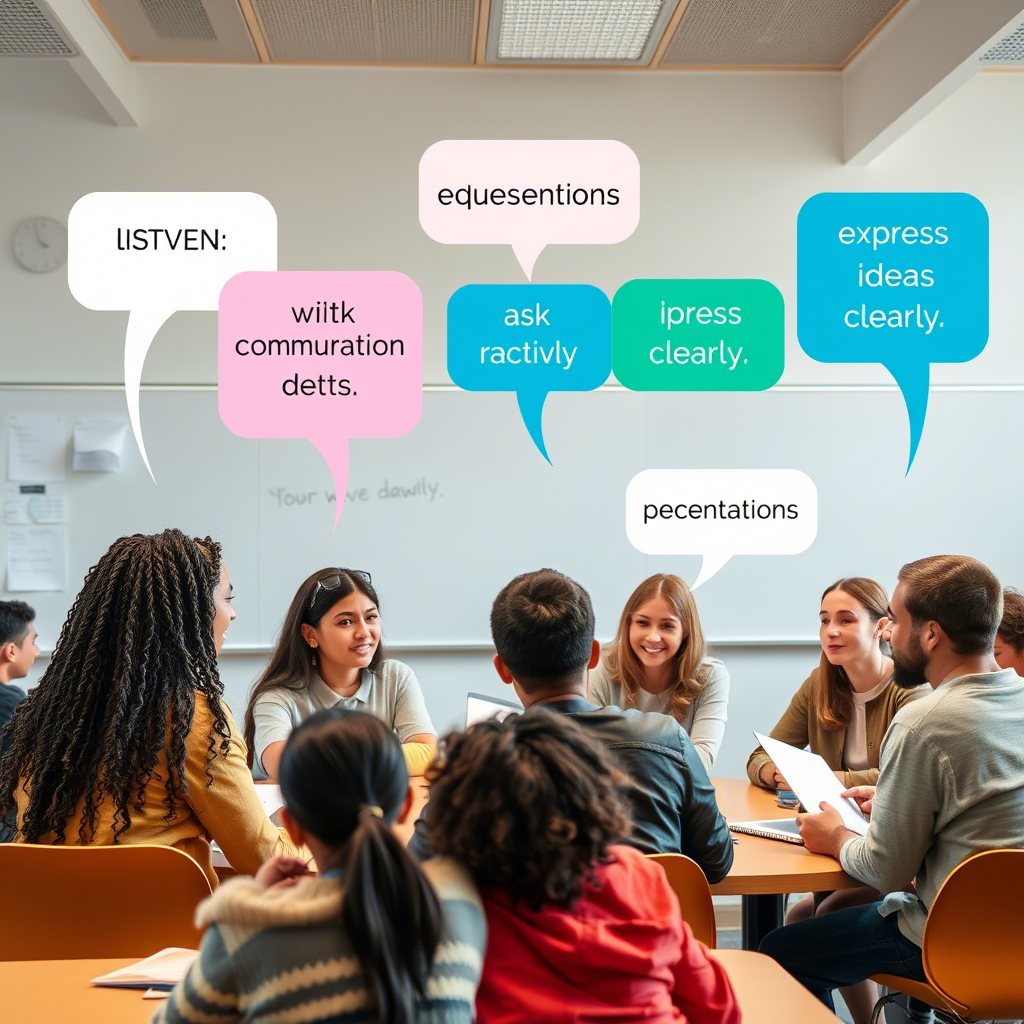In today’s competitive and interconnected world, communication skills are among the most essential soft skills students can develop. Whether it’s delivering a class presentation, participating in group discussions, or preparing for job interviews, strong communication skills are the key to academic success and career advancement. This article explores how students can develop communication skills effectively, offering practical strategies and actionable tips to improve both verbal and non-verbal communication.
Why Communication Skills Are Important for Students
Good communication goes beyond speaking clearly. It includes listening, interpreting non-verbal cues, expressing ideas with confidence, and building relationships. Here’s why communication skills are critical for students:
- Academic Success: Effective communication helps in understanding lessons, participating in classroom discussions, and expressing knowledge during exams and assignments.
- Career Preparation: Employers consistently list communication as one of the top skills they look for in candidates.
- Improved Relationships: Strong communicators build better relationships with peers, teachers, and mentors.
- Leadership and Confidence: Communication empowers students to lead, influence, and contribute meaningfully in various settings.
1. Practice Active Listening
Developing good communication starts with becoming a better listener. Active listening means:
- Paying full attention to the speaker
- Avoiding interruptions
- Asking questions for clarity
- Showing interest through body language
Students can practice active listening by summarizing what they hear, maintaining eye contact, and engaging in meaningful dialogue.
2. Expand Vocabulary and Language Skills
A strong vocabulary enhances a student’s ability to express thoughts clearly. Here’s how to build vocabulary:
- Read books, articles, and blogs regularly
- Use new words in daily conversations
- Play word games or use vocabulary apps
Reading and writing frequently also help students gain fluency and confidence in language use.
3. Engage in Public Speaking
One of the most effective ways for students to improve communication is by practicing public speaking. This can be done by:
- Joining a debate or speech club
- Participating in school presentations and competitions
- Practicing speeches in front of a mirror or with friends
Public speaking boosts self-confidence and helps overcome the fear of speaking in front of an audience.
4. Participate in Group Discussions
Group discussions are an excellent opportunity for students to practice speaking and listening. These sessions teach students to:
- Articulate their opinions respectfully
- Listen to others’ perspectives
- Build on shared ideas
Students can start small by forming study groups where they discuss academic topics or current events.
5. Learn Non-Verbal Communication
Communication is not just about words. Non-verbal cues such as body language, facial expressions, and gestures play a big role. To improve non-verbal communication:
- Maintain good posture and eye contact
- Use appropriate facial expressions
- Be mindful of tone and gestures
Students can record themselves during conversations to self-evaluate and improve non-verbal behaviors.
6. Seek Constructive Feedback
Feedback is essential for growth. Students should:
- Ask teachers, peers, or mentors for feedback on presentations or writing
- Accept criticism positively and use it to improve
- Reflect on mistakes and successes to identify areas for improvement
Honest feedback can pinpoint weak areas and guide targeted development.
7. Use Technology and Online Resources
Students today have access to a wealth of tools to enhance communication skills. Some useful resources include:
- Apps: Grammarly, Speechify, Elevate, and Duolingo
- Platforms: Toastmasters, TED Talks, YouTube tutorials
- Courses: Online courses on platforms like Coursera or Udemy
These tools provide structured learning paths and interactive practice.
8. Develop Writing Skills
Written communication is just as important as speaking. To improve writing:
- Practice writing essays, blogs, and journals
- Edit and revise to understand grammar and sentence structure
- Seek feedback on writing assignments
Strong writing skills help students express their thoughts clearly and professionally in academic and personal contexts.
9. Role-Playing and Mock Scenarios
Role-playing different scenarios can help students become comfortable with various communication situations. Try:
- Practicing job interviews
- Simulating conflict resolution discussions
- Acting out customer service roles
These exercises build adaptability and prepare students for real-life interactions.
10. Join Clubs and Extracurricular Activities
Joining clubs like drama, debate, or student council provides students with regular opportunities to communicate and collaborate. These activities develop:
- Leadership and team-building skills
- Persuasive and negotiation skills
- Social confidence and initiative
Being active in extracurriculars promotes holistic communication development.
11. Practice Empathy and Emotional Intelligence
Communication isn’t just about speaking; it’s about connecting. Empathy helps students understand others’ emotions and respond appropriately. Tips to build emotional intelligence:
- Observe emotional cues in others
- Reflect on your own emotional responses
- Practice kindness and active compassion
Students who communicate with empathy are more likely to succeed in both personal and academic relationships.
12. Set Personal Communication Goals
Finally, students should set specific communication goals such as:
- Speaking confidently in class once a day
- Writing one journal entry daily
- Listening without interrupting during group work
Tracking progress and celebrating small wins can keep students motivated and focused.
Conclusion
Developing strong communication skills is a journey that requires practice, patience, and perseverance. By embracing these strategies, students can become confident communicators who thrive academically and socially. Whether through public speaking, active listening, or writing practice, every small step counts. Start today and empower yourself with the communication skills that will open doors to success in every area of life.
